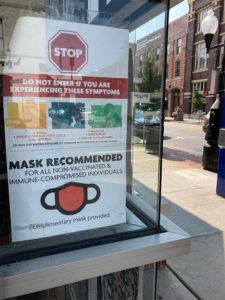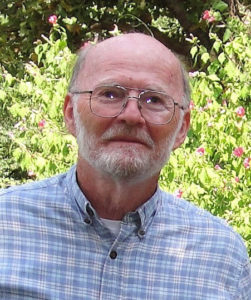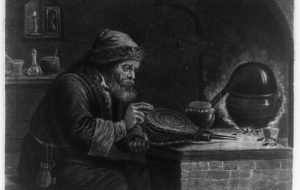calsfoundation@cals.org
History as Alchemy
Newspaper columnists and the like usually run a “the people we lost” piece this time of year, a collection of all the notable lives that were sadly extinguished at some point during the previous twelve months. The end of the year makes us ruminate a bit upon life and death, and assembling brief obituaries is fairly easy work. We have done it occasionally at the CALS Encyclopedia of Arkansas.
 However, looking back across the space of this past year, it seems just a bit perverse to single out the “notable people” we’ve lost while so many people continue to die from the COVID-19 pandemic. Too, earlier this month, a couple of tornadoes plowed into the northeastern Arkansas towns of Trumann, Monette, and Leachville—all part of a system that struck several other states, most notably Kentucky. Arkansas was spared the number of casualties that were recorded in Kentucky, but that does not make things easier for those families who were affected.
However, looking back across the space of this past year, it seems just a bit perverse to single out the “notable people” we’ve lost while so many people continue to die from the COVID-19 pandemic. Too, earlier this month, a couple of tornadoes plowed into the northeastern Arkansas towns of Trumann, Monette, and Leachville—all part of a system that struck several other states, most notably Kentucky. Arkansas was spared the number of casualties that were recorded in Kentucky, but that does not make things easier for those families who were affected.
None of these people may have been “notable” enough to warrant a page-one obituary summarizing the significance of their lives. But as novelist Mary Anne Evans (more popularly known as George Eliot) observed, “The growing good of the world is partly dependent on unhistoric acts; and that things are not so ill with you and me as they might have been, is half owing to the number who lived faithfully a hidden life, and rest in unvisited tombs.”

A writing professor of mine, Norman Lavers, penned a story in which a mystical being—demon, genie, whatever—visited the editor of a small literary journal and offered her the chance to save the life of a friend in exchange for a poem. That is, if she would say yes, her friend would not have the car accident he was about to suffer, and the poem would cease to exist. She agrees, and he starts making other offers to her. Save these people here in exchange for one of Shakespeare’s plays, or perhaps bring to light a new Homeric epic in exchange for this family dying in a fire. As she becomes more and more agitated and confused trying to balance the life of a culture and the lives of the people who make up that culture, he eventually breaks off the deal and walks away, leaving her alone listening to the siren of a distant ambulance.
Admittedly, when Dr. Lavers read that to us in one of his writing classes, my mind turned to what sort of deals I would make with this demon: “Look here, you can take the collected works of James Fenimore Cooper and William Wordsworth—especially that damned daffodil poem. How many lives will that save? Do you want any Jack Kerouac while we’re at it?” Or conversely: “Hey, I’ve got a little brother and some cousins I’ll sell cheap. Like, Edgar Rice Burroughs cheap.”
But can you really weigh the value of individual lives against works of art or literature, which only have real meaning in the context of our lives? Some of NASA’s greatest pioneers were inspired by science fiction stories in cheaply printed magazines. Take away the most innocuous bit of genre fluff, and our space program evaporates. And can you truly rank people in categories labeled “notable” or “not notable”? The people our end-of-year lists place in the former include those who would have amounted to much less save for the work of parents, teachers, friends, mentors—all those who lived faithfully a hidden life.
 I sometimes feel that the discipline of history, in its present state, is a bit like alchemy in the medieval period. We have but a faint grasp of how to understand the evolution of societies across time. We have no way to measure the true impact of us all. But maybe one day that will be different, and we can look back upon this point of time, with its end-of-year lists of notable deaths, which turn individual lives into history, and see that as akin to those vague attempts to transmute base metals into gold.
I sometimes feel that the discipline of history, in its present state, is a bit like alchemy in the medieval period. We have but a faint grasp of how to understand the evolution of societies across time. We have no way to measure the true impact of us all. But maybe one day that will be different, and we can look back upon this point of time, with its end-of-year lists of notable deaths, which turn individual lives into history, and see that as akin to those vague attempts to transmute base metals into gold.
But we aren’t there yet.
By Guy Lancaster, editor of the CALS Encyclopedia of Arkansas




